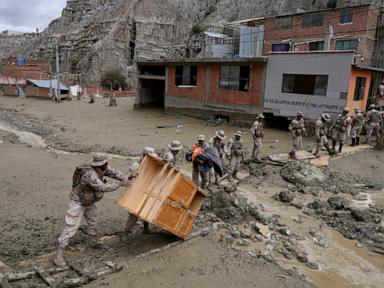ARTICLE AD BOX
FEARS are growing that New Year celebrations in Europe could be marred by riots with terror and “radical groups” taking to the streets.
Calls from the authorities in Germany and the Netherlands to tone down the use of fireworks on New Year’s Eve appear to have been ignored.
 Rex
Rex Rex
RexViolent riots erupted in Berlin last year as fireworks were launched at police, causing fires and injuries.
Amsterdam and some other Dutch cities have banned the use of pyrotechnics but the ban is expected to be widely ignored.
Both Germany and the Netherland have traditionally let off fireworks to usher in the new year.
New Year’s Eve and New Year’s Day are the only times fireworks in those countries can be set off without having gained permission first.
In recent years though their use to celebrate the new year have come under increased scrutiny.
During the riots in Berlin last year, dozens of police and firefighters were injured.
Authorities said some had been deliberately targeted with fireworks.
Violence also erupted in other German cities including Hamburg, Bonn, Dortmund and Essen.
Last year’s celebrations in the Netherlands also led to serious injuries, including a child in Utrecht who had to have his hand amputated and right eye removed.
In Amsterdam, authorities linked the use of fireworks to a fire at a primary school and attacks on cops.
Anticipating similar scenes to last year, officers in Berlin have been conducting raids on shops suspected of selling illegal fireworks on Friday.
Police said they had found seven alleged violations of the law, mostly in the Neukölln district, in southern Berlin.
Hundreds of Berliners were seen queuing to purchase fireworks on Thursday night.
German Interior Minister Nancy Faeser on Saturday said police would be deployed en masse to Berlin for New Year’s Eve.
Faeser also promised that security services would monitor Islamist extremist groups with “utmost vigilance” amid fears tensions could be heightened over Israel’s ongoing war against terror group Hamas in Gaza.
Faeser told the German newspaper Tagesspiegel: “Our emergency services had experienced blind rage directed against them time and again.
“The answer to this must be tough action by police, but also by judicial authorities.”
She added: “We are strengthening our federal police forces at the train stations in Berlin with four operational units and other additional units.
“We will have around 500 federal police forces deployed there.
“Apart from that, we are also supporting the Berlin police with another 300 federal police officers.”
Berlin’s police chief Barbara Slowik said this year’s policing operation on New Year’s Eve would be the “largest for decades” with some 2,000 to 2,500 officers deployed in the capital on New Year’s Eve.
Slowik added the Israel-Gaza war would likely worsen tensions.
In the northern German state of North Rhine-Westphalia, around twice as many cops as usual will be on the streets on December 31.
Due to the violence last year, mayors and police unions in the Netherlands and Germany called for a ban on the sale of fireworks.
Some municipalities, including Amsterdam, have already implemented bans.
While lighting fireworks has been illegal since 2021 in Amsterdam, the ban was widely ignored last year.
It comes as France is set to deploy 90,000 cops across the country amid a “very high terrorist threat“.
A total of 6,000 will be in Paris, where French Interior Minister Gerald Darmanin said over 1.5million people are expected to attend celebrations on the Champs-Elysees.
New Year’s Eve celebrations in Paris will centre on the 2024 Paris Olympic Games, including DJ sets, fireworks and video projections on the Arc de Triomphe.
The need to tighten security ahead of the Olympics was highlighted when a 24-year-old tourist was stabbed to death in a terrorist attack in Paris by an ISIS supporter earlier this month.
Collin – identified by his first name only – was the first victim of Armand Rajabpour-Miyandoab, 26 who also injured a British man near the Eiffel Tower on December 2.
But France is not the only European country increasing security over the holiday period.
In Austria, officials said they have increased security around Vienna’s churches and Christmas markets while Sweden has remained on high alert since this summer.
The terror threat level in the Netherlands was raised last week with security services warning terrorist groups like ISIS and Al Qaeda were using the conflict in the Middle East to encourage attacks in the West.
It comes as earlier this month a Hamas terror plot to slaughter innocent civilians in Jewish sites across Europe has been thwarted by police.
Seven suspected terrorists said to be “acting in Hamas‘ name” were been arrested during raids in Germany, Denmark and the Netherlands.
Earlier in December the home affairs chief warned Europe is facing a “huge risk” of terrorist attacks over the Christmas period amid the bloody war in Gaza.
 Rex
Rex Rex
Rex.png)
 10 months ago
7
10 months ago
7








 English (US)
English (US)